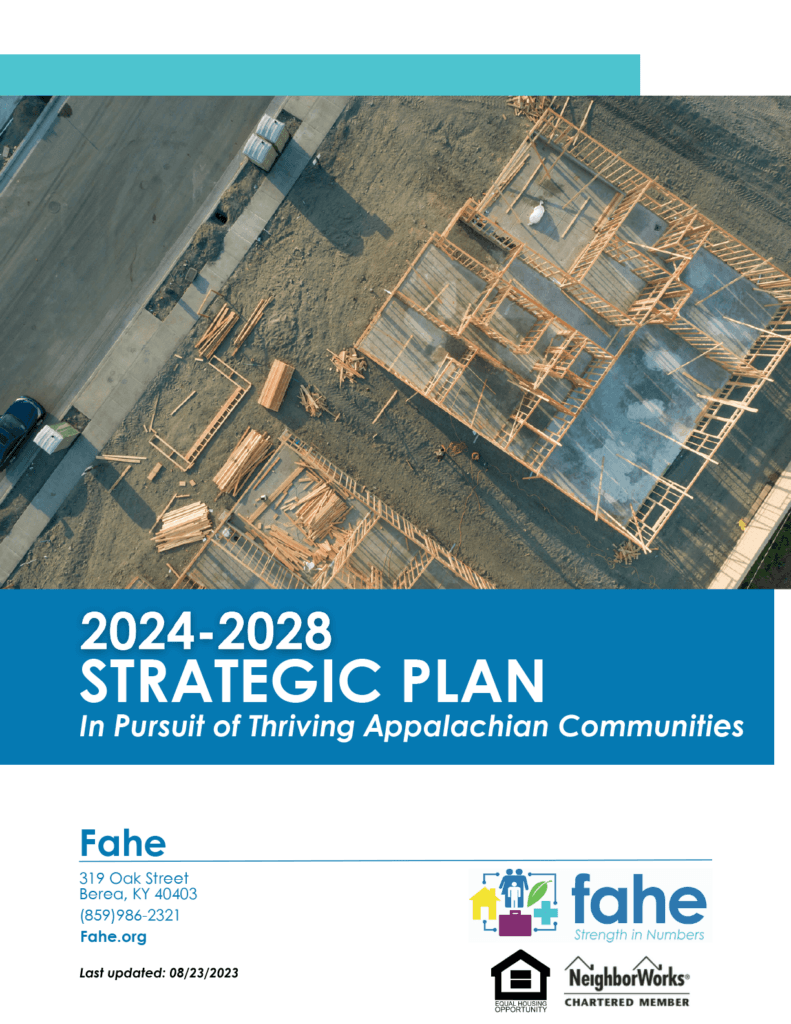
Fahe is building thriving Appalachian communities.
Working with our Network of 50+ nonprofits across the Appalachian portion of Kentucky, Tennessee, West Virginia, Virginia, Alabama, and Maryland, we use our expertise in finance, collaboration, innovation, advocacy, and communication to achieve a more prosperous Appalachian region. With a focus on leadership, housing, education, health and social services, and economic opportunity, Fahe empowers the people and communities of Appalachia with the resources, opportunities, and tools needed to build a better life. Our strength in numbers creates positive change in Appalachia, one of the poorest and most difficult regions of the country to serve.
Our Mission
Fahe brings people, organizations, and resources together to build homes, communities, and a thriving Appalachia through expanding economic opportunity and security for all. As leaders we speak with a unified voice to influence policy, philanthropy, and systems change.
Our Vision
We envision Appalachia as a place proud of sustaining its culture and environment, where growth, opportunity, and hope are balanced so that all people fulfill their potential with regard to housing, employment, educational opportunity and quality of life.
Our History
As a purpose-oriented Network of 50+ diverse community-based nonprofits serving the Appalachian states of KY, TN, VA, WV, MD, and AL, Fahe has cultivated the deepest-reaching platform to connect investment to boots-on-the-ground leadership throughout one of the most difficult places to serve in the country. Each of our Members are staffed by local leaders who understand the need and local capacity of their communities. As Fahe is Member-owned and -governed, when the needs of our Members and their communities change, so do Fahe’s strategies and priorities. While Fahe is located in and directly serves the Appalachian region, we also focus on advocacy and systems change on a national stage to increase the level of investment in all our nation’s underserved communities so they can become places of opportunity for all people.
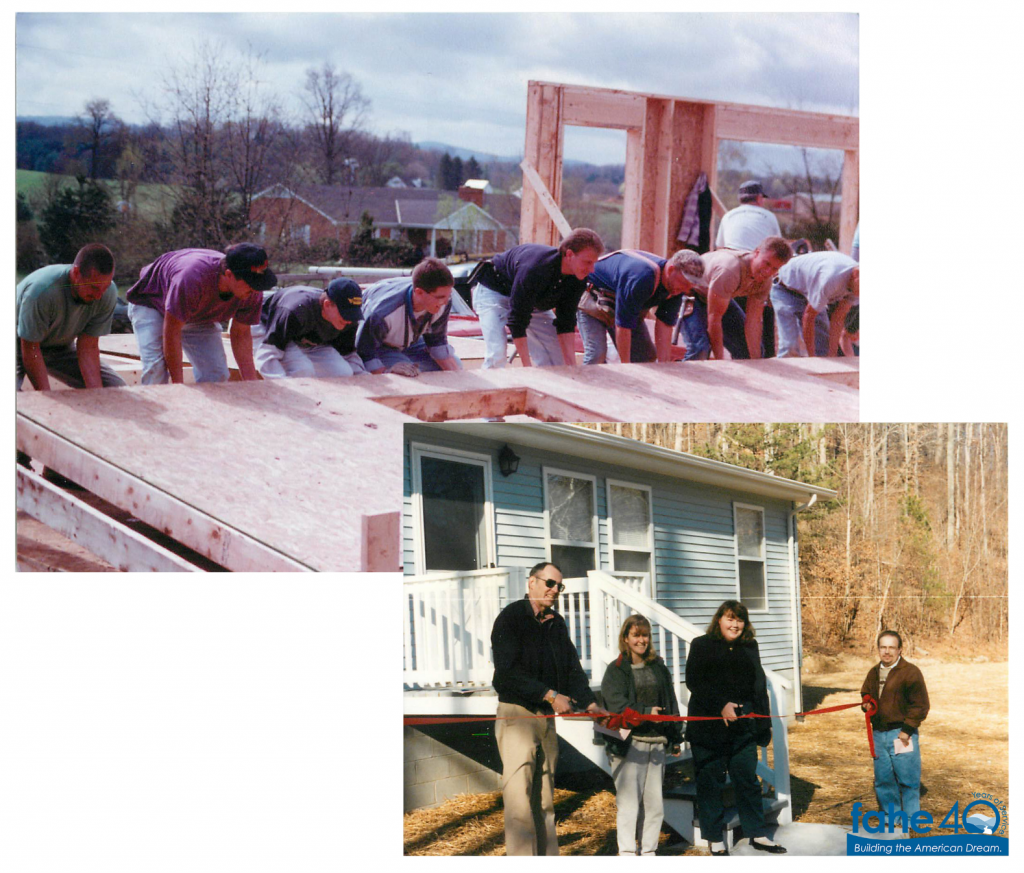
Since 1980 Fahe has invested $1.91B generating $1.76B in finance.
Fahe’s Four Corners
Fahe’s 2024-2028 Strategic Plan is framed by four corners which help us lay the foundation for the future: increasing investment (money), expanding capacity, building a new narrative, and growing strength in numbers (people).
By leveraging resources, building capacity, shaping a new narrative, and fostering wider collaboration, Fahe will contribute to a future where thriving Appalachian communities provide opportunities for all to realize their potential with regard to housing, employment, educational opportunity, and quality of life.
-
+
Money
Focuses on engaging philanthropic, public, and private funders to bring increased investment to the region, while advocating for policy reforms that support Appalachia.
-
+
Capacity
Emphasizes increasing local and regional systems-level capacity to ensure wealth of all types—intellectual, social, individual, natural, built, political, and financial—can grow and stay in Appalachia.
-
+
Narrative
Aims to shape a new narrative about Appalachia, told internally and externally, that positively highlights our culture, strengths, and the expertise of our region’s leaders.
-
+
People
Underscores the importance of collaborating across Appalachia to create stability to resources and opportunity. By building trusting relationships and dispelling the scarcity mindset which forces competition amongst potential allies, we can achieve thriving, prosperous, and equitable communities across Appalachia.
Where We Serve
The Fahe service area of Central Appalachia includes some of the most economically distressed regions in the country, with unemployment rates twice as high and median income about half as much when compared to national averages. These complex challenges contribute to the area’s geographic and social isolation, exacerbating problems such as addiction, poor health, lack of stable and affordable housing, and low educational attainment. These circumstances combined with generational poverty reinforce the perception that opportunity is out of reach for low-income people and perpetuate the belief that “nothing can change.”
Fahe was created by our original Members in 1980 to address barriers to progress, and we’ve demonstrated over the past four decades that lasting change can be achieved when outstanding community-based partners work together in the pursuit of shared goals. Since our founding, we’ve grown in size and focus, from seven Appalachian affordable housing nonprofits to a robust Network of over 50 diverse organizations, ranging from small Habitat for Humanity affiliates to Community Action Agencies to large multi-family property developers/managers that provide wraparound health and social services for vulnerable residents.
Looking to the Future
Fahe has always worked towards equity for all people, but in light of events over the past few years, we have acknowledged we can do a great deal more to help advance racial equity in and beyond our region. People of color are twice as likely to live below the poverty line in Appalachia. Although 93% of our region’s population is white, 30% of the people we serve identify as BIPOC. To translate Fahe’s intentionality into action, we are building stronger relationships with partners in BIPOC communities in Appalachia and other Persistent Poverty Areas to learn how our expertise, relationships, business platforms, and capacity can be of use to their communities.
Executive Team

Jim King
Chief Executive Officer
For more than three decades, Jim King has worked to advance opportunity for people and communities primarily in Appalachia. Mr. King has experience across all aspects of community development and finance and is recognized as a national leader in the field. He is a regular speaker at national and regional conferences and his advice is sought by policy makers and financial industry leaders. Mr. King has served on advisory boards alongside executive leadership at Truist Bank, First Citizens Bank, and Fannie Mae. He has served as board chair to Opportunity Finance Network (OFN), the leading membership of Community Development Financial Institutions nationally. He has been a contributor to numerous books and publications including “Forces for Good,” “Wealth Creation,” and “Appalachia Revisited.” He is a recipient of a fellowship from the Ford Foundation, the National NeighborWorks Association Lifetime Achievement award, and the National Housing Conference Visionary Award. Under King’s leadership, Fahe pioneered a collaborative model known as the Berea Performance Compact, bringing a commitment to scale and collaborative performance to nonprofits servicing rural and remote communities. These efforts have brought over $4.5 billion in impact, benefitting nearly 1 million people in one of the economically challenged regions of our country. He is an alumnus of the Harvard Business School’s three-year owner/president management (OPM) program and the Harvard University John F. Kennedy School of Government’s Achieving Excellence program. He holds an MBA degree from Eastern University and a BA from Bluffton University. Jim King can be reached via email at jim@fahe.org.
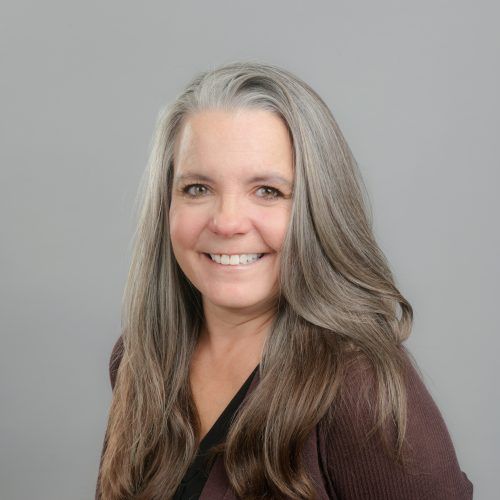
Sara Morgan
President
Sara Morgan has worked thirty years to improve the economic strength of Appalachia. She is an expert in financing housing, infrastructure, community facilities, nonprofits, and community development. Ms. Morgan has been with Fahe for 20 years and recently led two successful applications to the CDFI Bond Guarantee program—resulting in $60M coming to Appalachia—and raised $50M from the USDA Community Facilities Relending Program for communities of persistent poverty. Overseeing Fahe’s fundraising, development, and innovation, Ms. Morgan raises and deploys $150M capital annually. Under her leadership, Fahe became: the first nonprofit in the country to be approved to launch a Regional Broker Network; the nation’s highest performing USDA 502 Direct Intermediary, delivering over $70M in new mortgages to Appalachia annually; and a seller/servicer for both Fannie Mae and Freddie Mac. Her expertise was key to the launch of Fahe’s Housing Equity Funds, which to date has raised/placed $41.25M, creating and preserving over 516 affordable rental homes. Ms. Morgan is a 2012 alumnus of the Harvard University John F. Kennedy School of Government’s Achieving Excellence program, and holds a B.A. in Mathematics from Berea College. She is a certified CDBG grant administrator. She serves on the Boards of Invest Appalachia and the Homeownership Council of America, as well as the Freddie Mac Affordable Housing Advisory Council, the Fannie Mae Rural Duty to Serve Advisory Council, and the Steering Committee of Homeownership Alliance. Sara Morgan can be reached at sara@fahe.org.

Jenn Cerecedes
Chief Operating Officer
Jenn Cerecedes has significant expertise in refining and streamlining existing operational processes to achieve organizational goals. Her expertise stems from working for non-profit, for profit/publicly traded, and government organizations. Ms. Cerecedes believes strongly in the power of relationships and leveraging the strengths of people and organizations to accomplish goals and overcome challenges. With experience in Operations, Human Resources, Procurement, Marketing, and launching new initiatives, Jenn possesses broad knowledge and enjoys making connections and correlations across departments and divisions. She is a collaborative team member who excels at evaluating processes and implementing tailored solutions. Jenn holds a bachelor’s degree in liberal arts from The Evergreen State College, and a master’s degree in communication and leadership from Gonzaga University. She has been certified as an Energy Procurement Professional, APICS Supply Chain Professional, Housing Quality Standards Inspector, and a Healthy Homes Practitioner. Jenn has managed teams of up to 25 staff and held responsibility for over $40 Million in Federal, State, and local grants including CDBG, HOME, ARPA, and CoC funds. Jenn Cerecedes can be reached at jcerecedes@fahe.org.
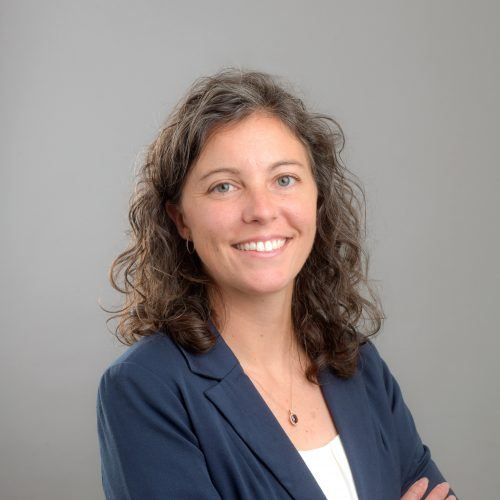
Brittney Murphy
Executive Vice President of Finance and Chief Financial Officer
Brittney Murphy’s expertise in financial analysis and planning supports Fahe’s Network of 50+ nonprofit Member organizations striving to build economies that work in Appalachia. Ms. Murphy supports local leaders on the ground in the region by providing training and support that moves small nonprofits toward sustainable financial positions that allow them to expand services and innovate. She launched Fahe’s successful Virtual CFO program, which gives Members and Partners direct access to financial expertise, and she conducts national-level trainings via NeighborWorks America. Ms. Murphy is an expert in federal funding and compliance, and provides in-depth knowledge of financial analysis that informs managerial decision-making. She leads Fahe’s annual budget development process, and is a key contributor to the development of strategy that moves the corporation and Network towards greater stability and impact. Ms. Murphy oversees daily operations of the Finance departments and is responsible for internal and external reporting. Brittney Murphy can be reached at bmurphy@fahe.org.
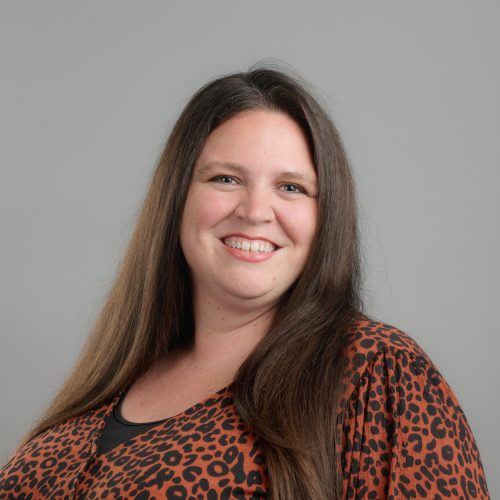
Laura Meadows
Executive Vice President of Lending
Laura Meadows is a nationally-recognized expert in delivering finance into underserved rural places. She’s been a leader in informing Duty To Serve plans for GSE’s, and is unparalleled in her knowledge of the USDA 502 Direct loan program, which has been the backbone of affordable housing finance in rural America for decades. She advises nonprofits across the nation on how to administer the USDA 502 Direct program, resulting in earned income opportunities and access to mortgage dollars for the low-income households they serve. As Executive Vice President of Lending, Ms. Meadows oversees all functions of the single-family lending department, as well as Community Lending. During her 15 years at Fahe, single-family home purchase lending has grown from $3M in FY2007 to $140M in FY2023. Laura Meadows can be reached via email at laura@fahe.org.
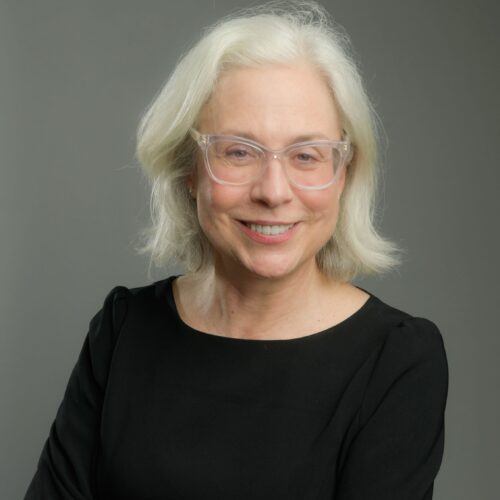
Lina Page
Chief Communications Officer
Lina Page is a strategic communications expert who has helped to transform CDFIs—Community Development Financial Institutions—from an obscure term that very few people knew about into an industry that is recognized nationally for creating economic justice and opportunity. As Fahe’s Chief Communications Officer Ms. Page develops strategies to build and amplify the Fahe brand as she oversees all internal and external communications. She works closely with Fahe Members in crafting a new narrative that will highlight the Network’s impact and engage more supporters. In a prior role at Opportunity Finance Network, the national association of CDFIs, Ms. Page created visibility for CDFIs through owned, earned, and paid media. Over nearly two decades Lina developed brands, crafted key messages, and launched proactive communications to demonstrate how CDFIs provide solutions during several landscape shifts, including the Great Recession, a rise in national unemployment, predatory lending, disaster recovery, racial reckoning, and the pandemic. She has led significant co-branded marketing initiatives with financial, government, philanthropic, and corporate partners. She holds a B.A. from the University of Pennsylvania. Ms. Page can be reached at lpage@fahe.org.

Board of Directors
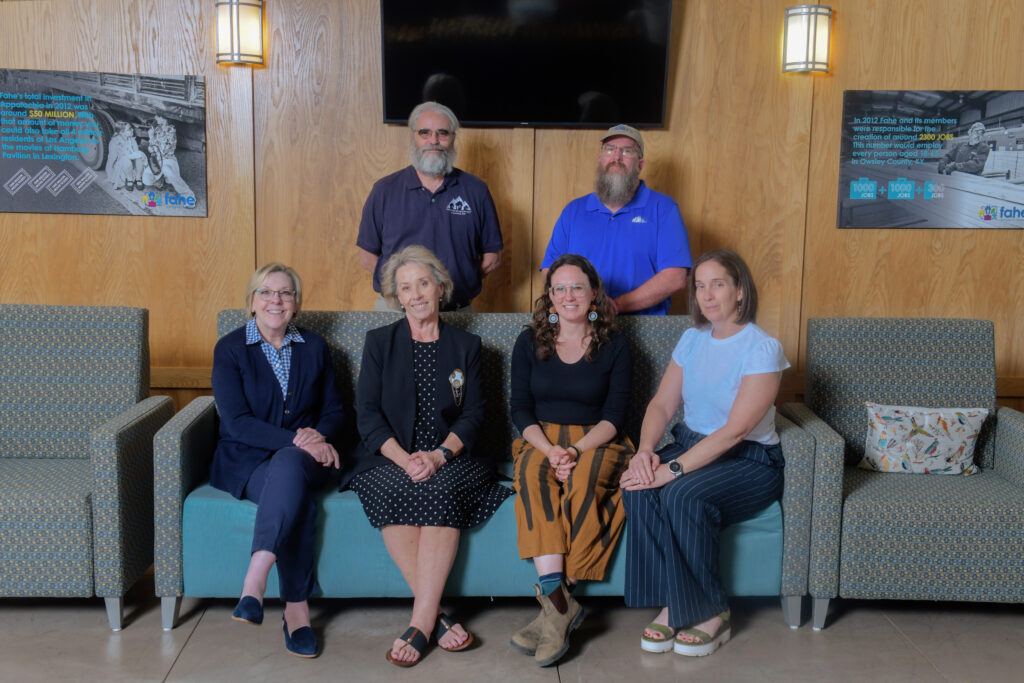
Fahe’s Board of Directors is comprised of Fahe Members from each state caucus plus several at-large board members.
Alabama
Aron Boldog—Community Action Partnership of North AL
Mary Ellen Judah—Neighborhood Concepts, Inc.
Tennessee
Jackie Mayo—HomeSource east tennessee
Lindy Turner—Clinch-Powell RC&D
West Virginia
Emily Wilson-Hauger—Woodlands Development Corporation
Christal Crouso—Fairmont/Morgantown Housing Authority
Kentucky
Scott McReynolds—Housing Development Alliance
Seth Long—HOMES, Inc.
Virginia
Andy Kegley—Open Door Community
Jake Powell—Community Housing Partners
At Large
Diane N. Loeffler—UK College of Social Work
Dana Bezerra—Greater Share
Adam Dickson—Langston Centre
Donna Gambrell—Appalachian Community Capital
Jeff Mosley—Capital Impact Partners

